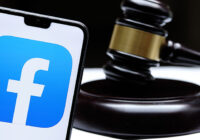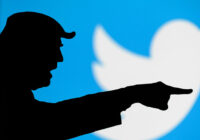Though under increasing pressure from critics in Washington and direct threats from some presidential candidates intent on breaking up his monopoly, Mark Zuckerberg has the support of at least two prominent politicians. According to Bloomberg, the CEO and chairman of Facebook is “quietly” developing a friendship with one of the higher profile Democratic presidential candidates. Pete Buttigieg appears more relaxed than, for example, Bernie Sanders and Elizabeth Warren about challenging Big Tech.
On the other side of the aisle, the House of Representatives minority leader, Republican Kevin McCarthy, has applauded Zuckerberg’s initiative in favor of free speech. He especially appreciates the fact that Facebook will specifically exempt political advertising from the scrutiny it has promised to focus on fake news. This opens the floodgates for McCarthy’s fellow Republicans to mobilize their fabled inventiveness with campaign messages. They have in the past proved to be masters of innuendo, barely disguised aspersions of opponents and emotionally charged messages crafted to inspire fear and loathing of political chimeras in voters’ minds.
Of course, the same freedom from censorship will also be available to Democrats, who have developed similar talents, the latest example being Hillary Clinton’s smears of fellow female Democrat and presidential primary candidate, Tulsi Gabbard. Gabbard’s unforgivable sin, of course, was to volunteer for combat duty in the wars Clinton consistently promoted and voted for, and then, having discovered the sordid political reality behind them, to ungratefully criticize those same wars.
California Representative McCarthy offered this appreciation of Zuckerberg’s speech: “Yesterday was a heartwarming reminder that free expression is the best business model in the world.”
Here is today’s 3D definition:
Business model:
In the world of politics, empty slogans that appeal to the emotions of voters, the exact opposite of what the term means in the world of business itself, which sees the business model as a carefully structured analysis of the factors that justify investment, including sources of revenue, target market, products and financing.
Contextual Note
With his heart thus warmed and excited by Zuckerberg’s promised neutrality, it becomes clear that McCarthy wants to see all barriers to irresponsible political speech eliminated, even when it involves outright lying — something that has become the unstated norm in political discourse, at least since Donald Trump’s election.
McCarthy sees it as a more general combat: “The idea of banning speech you might not like is nonsense, but sadly the mindset is creeping into places like college campuses and our presidential campaign platforms.” Irresponsible speech has always existed in politics, but in the past, various social brakes existed that tended to keep it within bounds. Some were legal and some are purely social or cultural. Characterizing irresponsible speech as a threatened species that needs to be protected is something of an innovation.
Despite McCarthy’s approval, most analysts severely criticized Zuckerberg’s speech. Wired points to Zuckerberg’s “warped history lesson.” The Verge highlighted the basic flaw in his thesis: “Facebook isn’t a neutral platform, and we shouldn’t talk about it that way.” But Zuckerberg wants his audience to believe in Facebook’s neutrality.
By appealing to an absolute principle, Facebook’s founder is playing fast and loose with the issue of free speech. He did, however, identify one true problem while avoided another, when he said: “I don’t think most people want to live in a world where you can only post things that tech companies judge to be 100% true.” Of course they don’t. They may even prefer to live in a society where tech companies don’t exercise monopolistic power.
Zuckerberg doesn’t want people to perceive that today the choice actually is in the hands of tech companies and tech companies only. In a better world, the public would have direct or indirect means of filtering the lies that so easily propagate thanks to Facebook’s commitment to “freedom.” Though cumbersome, the traditional indirect means is government — for example, a bureau of verification. Direct means would also be feasible, but that would imply putting in place the sophisticated technology that would empower users to judge, collectively, rather than individually. But that is something private tech companies would never accept to do. Zuckerberg, in particular, has shown little taste for sharing power: “People should be able to see for themselves what politicians are saying.” At the risk of sounding repetitive, Zuck added: “In a democracy, I believe people should decide what’s credible, not tech companies.”
This is called passing the buck to the individual user, whom he expects to be a truth detective. By letting each user decide, as any snake oil salesman knows, people will react mainly on the basis of their emotions. In purely logical terms, Zuckerberg has proposed a false dichotomy, one of the favorite tropes in US political rhetoric. People are not the opposite of tech companies. They neither have the resources of tech companies nor the level of social responsibility any legitimate company is expected to exercise.
Historical Note
Zuckerberg’s argument may have convinced Kevin McCarthy, but others find it and Zuckerberg himself lacking in credibility. But the political question shouldn’t be about credibility. It should be about truth, or at least truthfulness. With the right rhetorical tools, practically any proposition can be made to appear credible. As every politician and lawyer knows, many credible propositions are false. And in politics, just as in every other form of marketing, the goal is never to be truthful, but to seduce, to sell, to get elected and to consolidate power. By making some false statements sound credible, political marketing achieves its goals.
A recent article in Foreign Affairs titled “The United States Made Information Free and Foreign Manipulation Possible” provides a potted history of the problem of misinformation, covering the period since the Second World War. Its subtitle is “How Unrestricted Broadcasting Set the Stage for a Misinformation Overload.” The author, Diana Lemberg, traces the ideological belief in unrestricted media freedom back to the idea expressed in 1944 by Kent Cooper, head of the Associated Press.
Attributing the rise of fascism in Europe to governments that had the power to censor and control the news, he believed that “Without news distortion the people of the aggressor countries could not have been deluded into supporting the acts of their governments.”
This position fails to distinguish between manipulating information and manipulating the meaning of the information made available to people. Anyone who writes the news manipulates meaning. (This column is an example of that, but one that calls attention to the process). Cooper formulated his fear around information itself and neglected the ways in which meaning is created. Freeing expression does not in itself protect the truth or prevent untruth from prevailing. Meaning can be even more easily manipulated by private corporations, groups or rhetorically sophisticated individuals than by governments. Governments are not the only actors who manufacture consent.
The ideology of unrestricted broadcasting that prevailed in the second half of the 20th century gave an advantage to the most powerful communicators. It had an invasive effect on less powerful cultures. As the author explains: “The free-flow ideal was never politically neutral. To open a country’s media space to transnational information flows might protect its people from heavy-handed domestic censorship, but at the cost of leaving them more susceptible to outside manipulation and to the ideological headwinds sweeping the globe.”
The Cold War enabled not only the US but also the Soviet Union to go global in their quest for political influence and control through the manipulation of the meaning of current events, whose meaning had previously been elaborated, often through informal intellectual dialogue, in a local context. In the midst of the Cold War, the other nations of the world felt the pressure to the point of calling into question practices they perceived as compromising their political sovereignty. “In a 1972 U.N. General Assembly vote, 102 countries agreed on the need to ‘elaborate principles governing’ direct broadcasting ‘with a view to concluding an international agreement,’” writes Lemberg. That agreement never came into being.
Since 1972, the concentration of media in the US has continued apace. After the fall of the Soviet Union, the idea of “free media” meant essentially the freedom of powerful corporate media conglomerates in the US to define what is news as well as what it means. And those conglomerates have become fewer in number and increasingly wealthy and powerful.
With the advent of social media came the promise of democracy, but Facebook’s example alone shows that the people of a democracy have a political voice only as individuals or within small groups of “friends,” whereas power has become concentrated in the corporations that control the medium. Influence is available to those who make the investment to purchase and manage it, including overseas hackers. The article reaches this logical conclusion: “Scholars of the Cold War have pointed out that, in the broad sweep of history, what happened in the 2016 U.S. elections was nothing new.” It was the same principle applied to different media.
The current state of affairs points to another curious historical observation. Thirty years after the fall of the Soviet Union and 15 years after the birth and continued expansion of social media, for some reason today’s political culture in the US has regressed to the mindset and behavioral practices of the Cold War. Many people felt that Trump’s slogan, “Make America Great Again,” implied a return to the 1950s, when propaganda and fear of a sinister enemy had become a foundation of public culture as the consumer society prospered.
The era of social media, empowering the people has paradoxically liberated a phenomenon akin to McCarthyism, but on a far grander scale. Hillary Clinton’s fantasized attack on Tulsi Gabbard, following three years of Russiagate, provides a perfect example of how far it can go.
For the Democrats, the trauma of losing to Trump in 2016 has literally made the America of the 1950s “great again,” as it has led to a permanent paranoid obsession with Russia, as if the Soviets were still there endangering the West’s 30-year-old propaganda victory.
Facebook has pleaded no contest (rather than guilty) to enabling Russian interference in the 2016 presidential race, but now claims to have constructed solid defenses that will prevent that from happening again. At the same time, Mark Zuckerberg has, in the name of free speech, liberated his own media for domestic propaganda and all the fake news that is fit to publish. Kevin McCarthy is right to call it a “business model,” because it certainly isn’t a model for democratic politics.
[In the age of Oscar Wilde and Mark Twain, another American wit, the journalist Ambrose Bierce, produced a series of satirical definitions of commonly used terms, throwing light on their hidden meanings in real discourse. Bierce eventually collected and published them as a book, The Devil’s Dictionary, in 1911. We have shamelessly appropriated his title in the interest of continuing his wholesome pedagogical effort to enlighten generations of readers of the news.]
The views expressed in this article are the author’s own and do not necessarily reflect Fair Observer’s editorial policy.
Support Fair Observer
We rely on your support for our independence, diversity and quality.
For more than 10 years, Fair Observer has been free, fair and independent. No billionaire owns us, no advertisers control us. We are a reader-supported nonprofit. Unlike many other publications, we keep our content free for readers regardless of where they live or whether they can afford to pay. We have no paywalls and no ads.
In the post-truth era of fake news, echo chambers and filter bubbles, we publish a plurality of perspectives from around the world. Anyone can publish with us, but everyone goes through a rigorous editorial process. So, you get fact-checked, well-reasoned content instead of noise.
We publish 2,500+ voices from 90+ countries. We also conduct education and training programs
on subjects ranging from digital media and journalism to writing and critical thinking. This
doesn’t come cheap. Servers, editors, trainers and web developers cost
money.
Please consider supporting us on a regular basis as a recurring donor or a
sustaining member.
Will you support FO’s journalism?
We rely on your support for our independence, diversity and quality.






